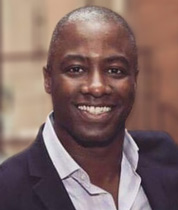Session Recap: Business Development in the Age of Digital Privacy and Personalization

The top three best practices in developing relationships are active listening, emotional intelligence, and building trust. Neuroscientific research on oxytocin – the trust and relationship molecule – reminds us that in every initial interaction with a human being we have two subconscious questions:
- Do I trust this person?
- How do I get them to trust me?
An innovator in the ultra wealth industry for 30 years, Milton Pedraza, CEO at the Luxury Institute, LLC, promotes achieving not just good, but excellence, in the wealth advisor field. Pedraza believes this is singlehandedly accomplished through creating trust. To note, there is a difference between operational trust and what Pedraza deems, “best interest trust,” meaning first and foremost, your clients’ best interests are always top-of-mind.
Relationships between human beings should be profoundly humanistic. The wealth management part is never as important as the bond between human beings. You’re not just doing financial wellbeing. You’re doing humanistic wellbeing. Failure to deliver a trustworthy relationship is a missed opportunity that causes reputational damage.
Trust, not data, is the currency of the 21st century. Today’s consumers are more discerning, more vocal, and have more input into evaluating our trustworthiness. To be seen as great – not just good – prove you are trustworthy.
Our increasingly digital environment offers potential upsides to building trusting relationships. Particularly during the pandemic, clients and prospects are more available – they’re not commuting or traveling and may also be more willing to allocate time for rich discussion. Clients may also discover they don’t want as many face-to-face interactions as they’ve been having.
Also, clients of all ages welcome digital interaction. More so, clients want to get to the point faster. Digital is seen as more efficient and more effective.
There are several requirements to building a trusting relationship:
- Surround clients with as much trustworthiness, expertise and humanity as you can. It’s their world, and you fit into it.
- Maintain your reputation as a highly recommended professional who protects and enhances clients best interests.
- Have plentiful information about the client, and stay current on their lives without being intrusive.
- Take care of the details, both large and small.
- Elevate your client experience. You can’t just be a problem solver. You must provide solutions in the moment and anticipate foreseeable problems.
- Create a seamless experience irrespective of the channel. Use whatever means of communication you have that’s most convenient and appropriate.
- Be an evolved, emotionally intelligent human being.
Emotional intelligence is a key factor in building trust. The Luxury Institute uses four pillars to define emotional intelligence:
- Trustworthiness – Demonstrate you serve their best interests first and foremost.
- Expertise – Keep current in your expertise. Know what, how and why you do business.
- Deep empathy – Put your ego aside and listen deeply with the intent to learn and serve (not the intent to sell).
- Generosity – Listen for cues, so you can serve in a relevant and genuine manner.
If you want to be highly emotionally intelligent, practice these skills every day. This will advance you from a good advisor to great one. When you use all your human creativity with these four elements in mind, the other person feels special – and, Pedraza says, your soul feels special to.
The other key factor in building trust is digital intelligence. We live in a profoundly digital world. You need clients to trust you with personal, rich, real-time data for deeper personalization. Simple analytic technology and artificial intelligence (AI holds and calculates data), delivers a “digital safe deposit box” to aggregate important data – financial and otherwise. Good data allows you to do more, faster, and use the information to build human connection. As well, go beyond what’s required to guarantee cyber security. Some advisors do a cyber security audit for clients to ensure privacy.
One final note on earning referrals. If your clients like working with you, they are happy to provide referrals. Be a super-connector with a vast network of peers to refer business. Lastly, reminds Pedraza, ASK!
 | Vincent Hayes is the managing director of member development at Family Office Exchange (FOX). Vincent serves as the ambassador for FOX in reaching out to new members, promoting the networking and education benefits that come with FOX membership. He helps prospective members find ways to solve the challenges they face in running their family enterprises using resources available within FOX and its membership community. Areas of Expertise: Direct Investing, Business Owner Trends |